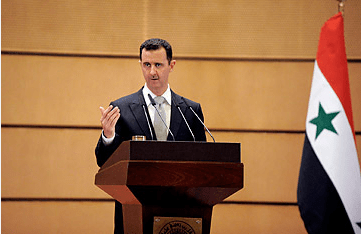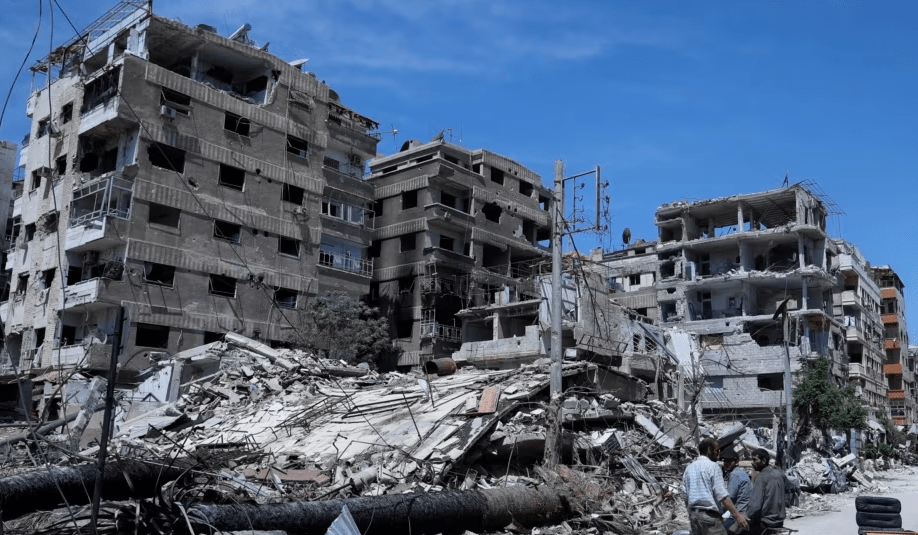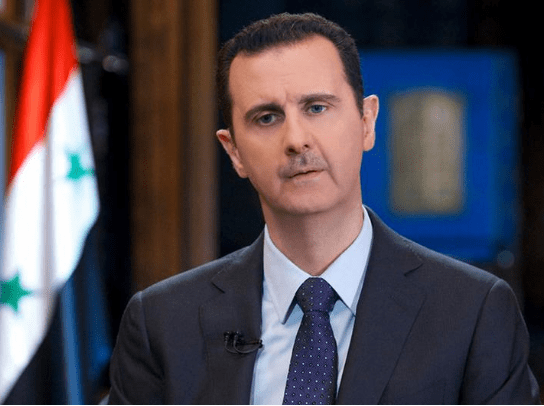France has issued an arrest warrant for the Syrian President, Bashar al-Assad.

France has issued an arrest warrant for the Syrian President, Bashar al-Assad. In recent developments from France, the issuance of arrest warrants has been announced concerning Syria’s president, Bashar al-Assad, his brother Maher Al Assad, and two other high-ranking officials.
The charges revolve around the alleged use of prohibited chemical weapons against civilians, with the warrants asserting that President al-Assad, his brother, and the implicated officials were complicit in both crimes against humanity and war crimes. This unprecedented move marks the first time a nation has sought the arrest of a sitting Head of State in another country for offenses against humanity. There are indications that Interpol will soon issue a red notice in connection to these warrants.
The foundation for these arrest warrants lies in a criminal investigation related to chemical attacks in the town of Douma and the Eastern Ghouta District in August 2013. These attacks resulted in the tragic loss of over 1,000 lives. Notably, these warrants represent the first instance of international legal action against individuals in connection to chemical weapons attacks in Syria in 2013
The sarin gas attack that transpired in the town of Douma and the Eastern Ghouta District in 2013 was a horrific incident that unfolded during the Syrian conflict. This chemical attack occurred in August 2013 and resulted in the tragic loss of over 1,000 lives. Sarin gas, a highly toxic nerve agent, was employed in this assault. Sarin is known for its extreme lethality, and even minute exposures can lead to rapid fatalities.
The victims of this attack experienced the devastating effects of sarin exposure, which can cause death within minutes. The use of chemical weapons, particularly sarin gas, has been a contentious issue in the Syrian conflict. While the Syrian government, led by President Bashar al-Assad, consistently denied allegations of employing chemical weapons, international investigations, including those by the United Nations, pointed to the use of sarin gas in this and subsequent incidents.

The sarin gas attack in Douma and Eastern Ghouta in 2013 prompted global condemnation and heightened concerns about the use of chemical weapons in conflict zones. The aftermath of this incident has been marked by investigations, legal actions, and international efforts to hold those responsible accountable for crimes against humanity and war crimes. The recent issuance of arrest warrants by France against President Bashar al-Assad and other officials is a significant development linked to the alleged complicity in these chemical attacks
The case leading to these warrants was filed in France by the Syrian Center for Media and Freedom of Expression (SCM). The founder of SCM emphasized the gravity of the situation, stating that the President is accountable for numerous crimes in Syria. The focus on the use of sarin gas, a particularly lethal chemical weapon, underscores the severity of the charges. The complexity of such cases, especially involving a sitting Head of State, introduces legal and diplomatic implications that extend beyond national borders.
Bashar al-Assad, the President of Syria, is currently confronting significant legal challenges and the potential for prosecution regarding allegations of committing crimes against his own citizens, particularly through the deployment of chemical weapons.


Testimonies provided by survivors played a crucial role in the investigation, shedding light on the use of sarin, a highly lethal nerve agent. Despite consistent denials from Assad regarding the use of chemical weapons, persistent allegations and compelling evidence suggest otherwise. The conflict that erupted in 2011, starting with protests and escalating into a brutal crackdown, was classified by the United Nations as a war crime. While Syria continues to deny the use of chemical weapons, a joint UN inquiry confirmed the deployment of sarin in April 2017, implicating Assad’s approval.
Arrest warrants issued against a sitting head of state are a rare occurrence, with exceptions typically made in cases involving genocide, crimes against humanity, or war crimes. Notably, President Putin and Sudanese President Omar Al-Bashir are two other heads of state facing similar warrants from the International Criminal Court.
.
.